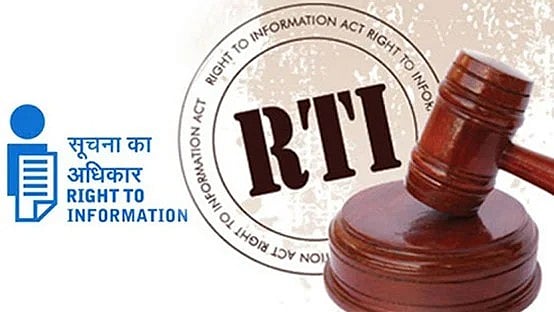
RTI.
Credit: RTI Rajasthan portal
The Right to Information (RTI) law, one of the most transformative and empowering legislations enacted in independent India, came into existence in 2005 on the back of a strong grassroots movement and has initiated the vital task of redistributing power in a democratic framework. Estimates suggest that every year, around 60 lakh applications are filed under the law, making it the world’s most extensively used transparency legislation.
The RTI Act has empowered people to expose failures in the delivery of essential services, claim their basic rights, and has served as a powerful instrument to hold the nation’s highest authorities accountable for their performance, decisions, and conduct. Over the years, the law has been instrumental in unearthing major corruption scandals, including the electoral bonds scam, the Vyapam scam, and the Adarsh housing society scam.
It has been a crucial ally for movements seeking environmental justice, campaigns pressing for electoral reforms, human rights defenders, and even mothers seeking accountability for enforced disappearances in conflict zones. The law has enabled citizens to hold governments to account and speak truth to power. Perhaps it is for this reason that the legislation – and those who use it – now face an increasingly severe backlash.
The RTI Act, which topped global transparency rankings in 2011, has been regressively amended twice in the past six years – in 2019 and again in 2023. The first set of amendments dealt a severe blow to the autonomy of information commissions, handing the central government control over the tenure, salaries, and post-retirement benefits of all information commissioners.
Governments have long recognised the power of the transparency watchdogs to compel disclosure, even when public authorities seek to hide behind a veil of secrecy. Prominent examples include orders directing the disclosure of records related to the Prime Minister’s educational qualifications, declaring national political parties as public authorities under the RTI Act, and releasing names of wilful loan defaulters.
Information commissions have, therefore, been in the eye of the storm even before the 2019 amendments. Since the BJP government came to power in May 2014, not a single commissioner has been appointed to the Central Information Commission (CIC) without citizens first approaching the courts. Several information commissions are functioning with inadequate strength, leading to massive backlogs and inordinate delays in the disposal of cases.
Amendments and other assaults
The passage of the Digital Personal Data Protection (DPDP) Act in August 2023 dealt another blow to people’s right to know. The law amended Section 8(1)(j) of the RTI Act to exempt all personal information from disclosure, effectively erasing the carefully balanced exception that previously existed. The DPDP amendment also deleted a crucial proviso in the law, that “information which cannot be denied to Parliament or a State Legislature shall not be denied to any person.” The amended provisions could be invoked to block the release of details such as the names of loan defaulters, voter lists, identities of officials involved in key decisions, and even the names of contractors executing public works – all on the pretext of protecting “personal information”.
A fundamental prerequisite for the effective functioning of the Act is that data be collected in a timely and accurate manner. However, in recent years, the government has claimed that it does not have data on several key issues, including the number of deaths due to lack of oxygen during COVID-19, reasons for farmer suicides, and details of electronic surveillance it authorised. It has also shielded itself from public scrutiny by asserting that instruments like PM CARES do not fall within the ambit of the RTI Act.
The users of the law have also not been spared – over 100 RTI activists were killed during the last 20 years. Thousands have been assaulted, threatened, and slapped with false cases. The Whistleblowers Protection Act, passed in 2014, remains confined to the statute books as the Central government has failed to formulate rules to operationalise it. Without a robust mechanism to protect them, attacks on RTI users and whistleblowers continue unabated.
As India marks two decades of the transparency law, the need to defend and reinvigorate the legislation has never been greater. The right to information is not merely a legal entitlement – it is the foundation of democratic accountability. Efforts to weaken it strike at the heart of participatory governance and the citizens’ right to question those in power. The way forward lies in collectively striving to strengthen the sunshine law.
(The writers are transparency activists associated with Satark Nagrik Sangathan and the National Campaign for People’s Right to Information)
Disclaimer: The views expressed above are the author's own. They do not necessarily reflect the views of DH.